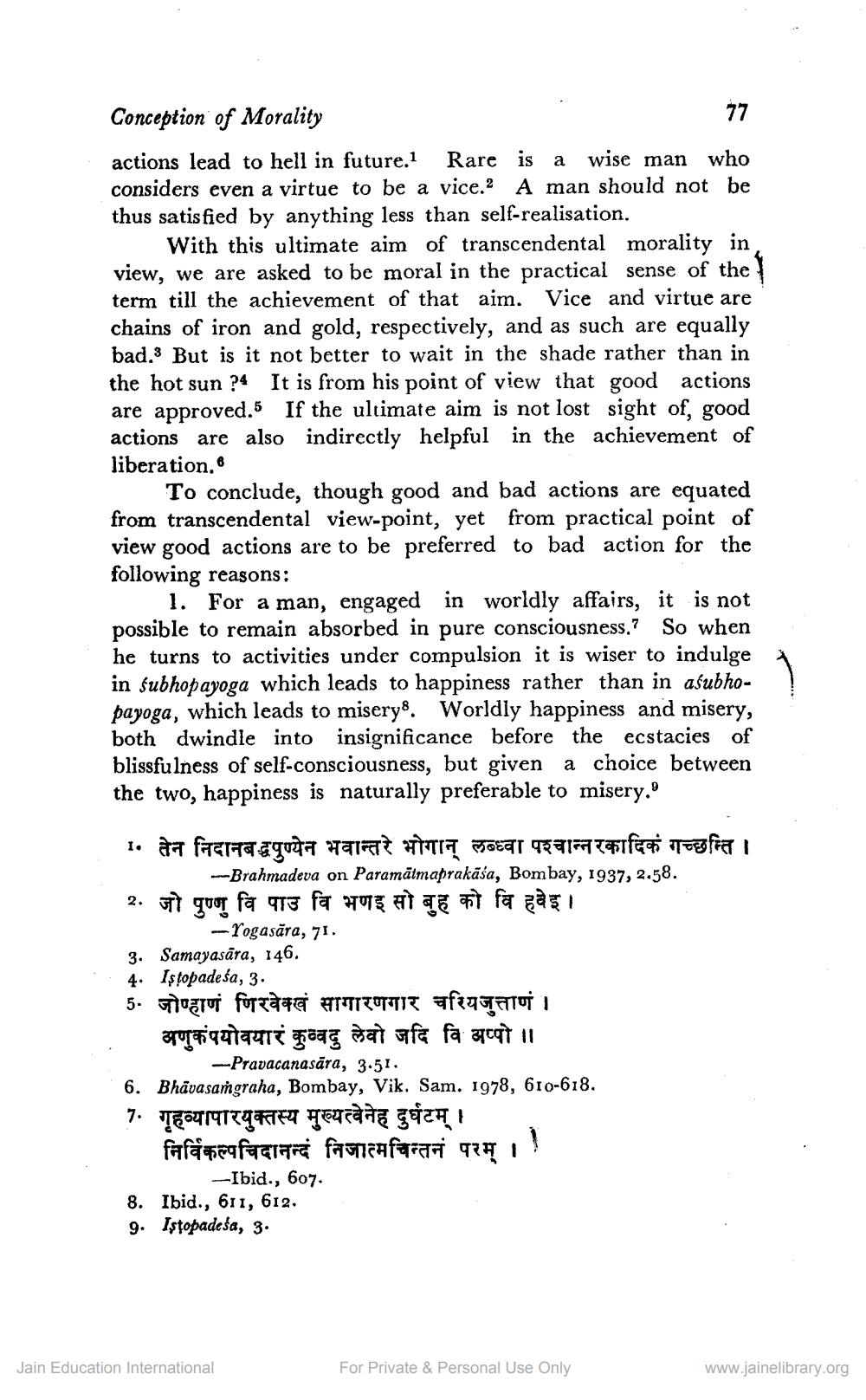________________
Conception of Morality
77 actions lead to hell in future. Rare is a wise man who considers even a virtue to be a vice. A man should not be thus satisfied by anything less than self-realisation.
With this ultimate aim of transcendental morality in view, we are asked to be moral in the practical sense of the term till the achievement of that aim. Vice and virtue are chains of iron and gold, respectively, and as such are equally bad. But is it not better to wait in the shade rather than in the hot sun ?4 It is from his point of view that good actions are approved. If the ultimate aim is not lost sight of, good actions are also indirectly helpful in the achievement of liberation.
To conclude, though good and bad actions are equated from transcendental view-point, yet from practical point of view good actions are to be preferred to bad action for the following reasons:
1. For a man, engaged in worldly affairs, it is not possible to remain absorbed in pure consciousness.? So when he turns to activities under compulsion it is wiser to indulge in $ubhopayoga which leads to happiness rather than in aśubhopayoga, which leads to misery8. Worldly happiness and misery, both dwindle into insignificance before the ecstacies of blissfulness of self-consciousness, but given a choice between the two, happiness is naturally preferable to misery.
1. तेन निदानबद्धपुण्येन भवान्तरे भोगान् लब्ध्वा पश्चान्नरकादिकं गच्छन्ति ।
---Brahmadeva on Paramātmaprakāša, Bombay, 1937, 2.58. 2. जो पुण्णु वि पाउ वि भणइ सो बुह को वि हवेइ।
- Yogasära, 71. 3. Samayasāra, 146. 4. Istopadeśa, 3. 5. जोहाणं णिरवेक्खं सागारणगार चरियजुत्ताणं । अणुकंपयोवयारं कुव्वदु लेवो जदि वि अप्पो ।।
-Pravacanasāra, 3.51. 6. Bhävasaṁgraha, Bombay, Vik. Sam. 1978, 610-618. 7. गृहव्यापारयुक्तस्य मुख्यत्वेनेह दुर्घटम् । निर्विकल्पचिदानन्दं निजात्मचिन्तनं परम् ।।
-Ibid., 607. 8. Ibid., 611, 612, 9. Istopadeśa, 3.
Jain Education International
For Private & Personal Use Only
www.jainelibrary.org




